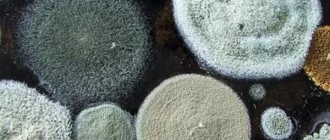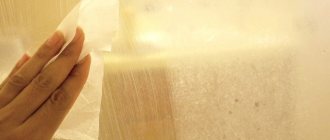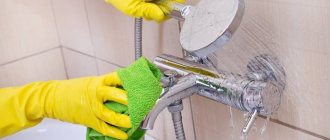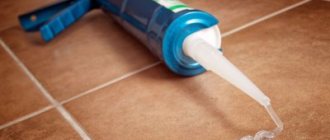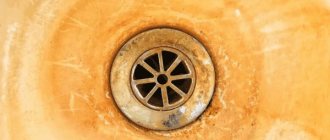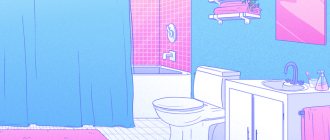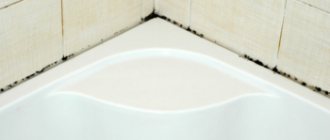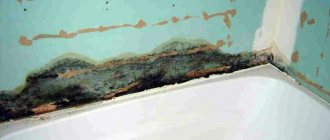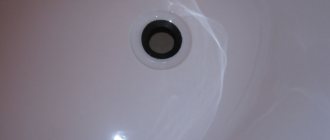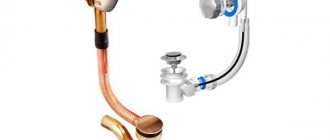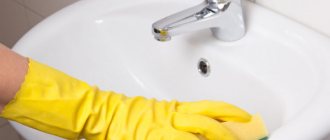With the arrival of spring, every housewife begins to put things in order in the house. General cleaning includes an extensive amount of work from the bathroom to the balcony: washing all textiles (tulle, curtains, bedspreads, blankets, etc.), washing windows, putting things in order in closets and bedside tables.
Many household items in the house are made of plastic, mainly shelves in the bathroom, window sills, plastic panels in the kitchen, and over time you can notice a rusty coating on their surface. Sometimes rusty stains are not so easy to remove, because you don’t really want to scratch the surface with a hard sponge or cleaning agents, making it unsightly or unusable.
Tap water enters the house through rusty water pipes, and all this red dirt remains on the bathroom shelves, sinks, tiles and toilets. Often such pollution occurs in places where indoor flowers are located; water after watering from a pot can get onto the windowsill. Chemicals for removing red stains are difficult to remove, but possible.
Ways and methods for cleaning plastic from rust at home
The plastic itself does not rust, but if it comes into contact with metal, it may leave red marks on it. They can often be found on window sills, under flower pots, on panels, where shelves are attached, on the ceiling, in the area of lampshades and more.
Rust can appear on the plastic parts of a refrigerator or washing machine, the list is endless. How to wash plastic from rust?
Read the article about what folk and professional remedies exist to wash off rust from plastic at home.
Care and prevention
In order not to be tormented by the question of how to properly wash plastic, it is better to prevent it from becoming dirty or to reduce the likelihood of its occurrence to a minimum. Here are a few basic recommendations that will help keep plastic items in good condition for a long time:
In fact, you don't need any special knowledge or skills to clean plastic quickly and easily. After studying the recommendations discussed in this article, even a novice housewife can do this.
How to remove using folk remedies?
To get rid of rust it is not necessary to use complex and expensive compounds. The means available in every home come to the rescue.
Lemon juice
You can deal with rust stains without damaging the plastic using lemon juice. The acid it contains removes dirt well. In small concentrations it is not capable of damaging the surface.
Mode of application:
The effectiveness of this method is average. If the rust is not deeply ingrained into the plastic, then you will be able to get rid of it the first time. In other cases, the procedure will have to be repeated 2-3 times.
The main advantage of lemon juice is that it is safe for use on all plastic surfaces . The acid concentration in it is not high, so there is no risk of color fading or parts melting.
Alcohol
Alcohol neutralizes rust well, so it can be used to get rid of even old stains. The higher its concentration, the more effective the procedure will be.
Procedure:
There are no restrictions for this method. Alcohol is not capable of harming plastic, so it can be safely used to treat any surface.
Acetic or oxalic acid
You can get rid of rust stains using table vinegar or oxalic acid. These are quite effective compositions that help cope even with stubborn stains.
Mode of application:
Particular care must be taken when cleaning colored plastic. During processing, you need to monitor its reaction to interaction with the detergent composition. Read more about cleaning surfaces from rust with vinegar here.
Soda and liquid soap
A combination of baking soda and liquid soap allows you to quickly and safely get rid of rust. These components are used as follows:
This composition will not damage or fade the product. The effectiveness of the product is high.
Hydrogen peroxide
If the stain is not too deeply embedded in the plastic, you can use hydrogen peroxide. However, it is used only on a light-colored surface. It can ruin dark plastic, causing white spots to appear.
Directions for use:
To combat rust, you need to use pharmacy hydrogen peroxide, and not the one used for hair coloring. This will avoid problems with plastic fading. Before first use, you need to test the product on an inconspicuous area.
Yellow spots on plastic
Windows, which are popular nowadays and made of such durable and easy-to-clean material, unfortunately, quickly lose their color. The reason for this is:
- ultraviolet influence of direct sunlight, which affects the material at the molecular level;
- temperature fluctuations due to weather or radiator operation;
- various impurities that react unpredictably to cleaning products.
The following will help to return the white color: hydrogen peroxide, a solution with bleach, car cosmetics, wipes for the care of computer equipment and other products described in the article.
Why does rust appear even on plastic bumpers in spring?
Plastic does not rust. Only iron rusts, any citizen who studied chemistry at school will say, and he will be right. But such a “chemist” experiences an even more severe “break in the pattern” when he discovers rusty spots on the snow-white plastic bumper of his car. Moreover, all bumpers, moldings, and other plastic can “bloom” in this way. A particularly powerful “harvest” of rust is observed in the spring. This effect is very easy to explain.
“Saffron milk caps” appear on the plastic bumper due to iron particles on it. Where do they come from? Everything is very simple, even if no one near your car has cut or polished metal using a grinder. Iron particles fall onto the car along with slush from the roadway. The fact is that metal powder constantly falls from any car.
Most of it is formed during brake operation. To improve their braking properties, the friction material of the pads contains quite a lot of filler made from pieces of iron wire. The brake disc, made of cast iron, also gradually wears out during operation.
These sawdust fall on the asphalt and then, mixed with drops of slush, end up on car bodies. And they begin to rust there, upsetting the car owner in the spring.
What to do with rust on plastic? To begin with, you can try to wipe off the rusty spot with something hard. But there is a risk that scratches will remain on the paintwork after this. Instead, you can always contact a specialized service station with a request to sand the bumpers. This operation will not be cheap, and there is no 100% guarantee that the specialists will do everything properly.
Remembering that we are talking about wear products of brake pads, to remove rust from plastic, you can use some kind of “brake disc cleaner” from one or another brand that produces auto chemicals. As a rule, the rust disappears after this. If you don’t have such a drug on hand, and you don’t want to go somewhere special to buy it, you can use homemade “chemistry”. For example, some kind of toilet cleaner. Rust removal is one of the main specializations of this type of product.
Well, and the very old-fashioned method - soda with vinegar essence. Their mixture removes any rusty deposits. The main thing here is not to be too zealous, scrubbing the bumper from red spots - with soda, like an abrasive, you can pretty much scratch the paint.
Source
What should you not use to remove rust stains and why?
To remove rust stains from plastic, you cannot use the following products:
Abrasives and hard sponges. Together with the dirt, they will remove the top layer of plastic. Its surface will lose its former smoothness and attractiveness.- Products containing chlorine. This substance will cause discoloration of the surface.
- Substances containing wax. This treatment will cause the plastic to become sticky and collect dust.
- Aggressive compounds with hydrochloric or other acid. Such substances will cause the plastic to dissolve.
- Solvents for paint and varnish coatings. Their application to a plastic surface will cause its damage.
